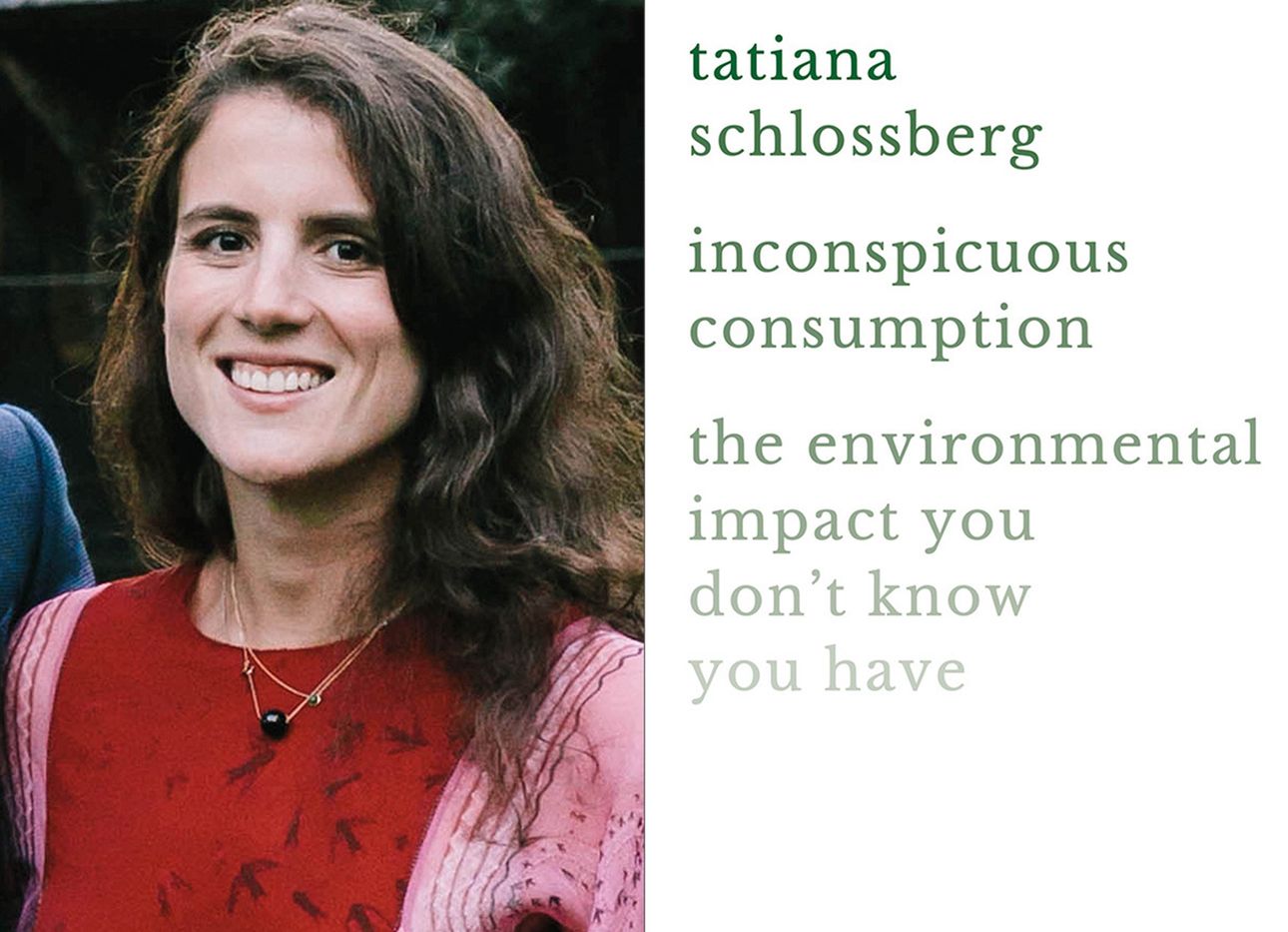
Environmental Journalist Tatiana Schlossberg Shares Her Media Diet
Journalist Tatiana Schlossberg, the author of the book Inconspicuous Consumption: The Environmental Impact You Don’t Know You Have, reports on climate and environment issues shaping our planet today, from consumer habits and industry practices to the latest scientific research. Here, she shares with us the outlets, reads, and listens that are part of her current media diet. (For more from Schlossberg, listen to Ep. 18 of At a Distance.)
What are some of your go-to, indispensable daily reads and/or listens?
I get the Climate Nexus newsletter every morning. For climate and environment stuff, E&E News and InsideClimate News. Otherwise, I read The New York Times, the Financial Times, The New Yorker, and The Washington Post.
Any apps or feeds you prefer in particular?
I’ve been trying to look at my phone less, so I actually got rid of all the news apps. I feel like this is probably the first time in the last ten years where I just can’t listen to or look at the daily news updates. It’s not helping me to know every little thing.
As a writer and journalist, how do you strike the balance of staying up-to-date while also maintaining the space to dig deeper in your own work?
Obviously, everything intersects with Covid-19 and the pandemic [right now], but I think a lot of climate news that people would otherwise be paying attention to is falling through the cracks, so I’m trying to keep up with that, and keep writing about the areas that I’m interested in. I’m working on a few things about plastics, and how Covid might affect that, or affect sustainability in hospitals. So it’s related to the news, but apart from the steady drumbeat of things that makes me anxious.
Any favorite podcasts?
I always listen to Fresh Air, though I know that’s not a podcast. Then there’s a podcast from the London Review of Books called Talking Politics, which just launched a new series called “History of Ideas.” Each episode is about a thinker, their big idea, and how it’s shaped politics. It started with Hobbes’s Leviathan and Mary Wollstonecraft, and now I’m listening to Marx and Engels. It’s all the people you hear about in school and maybe forget about, so it’s great to have a refresher.
Which outlets do you prefer to still read in print?
I pretty much read online, but we get The New Yorker and The Economist at home, which I’ll sometimes read in magazine form. And I still read real books—I can’t really read books on a screen.
Favorite writers or reporters that you’re following?
The climate team that I used to work for at the Times were just named finalists for the Pulitzer, which was really great to see. For climate stuff, Elizabeth Kolbert at The New Yorker. I think Robinson Meyer at The Atlantic does really great work. And I always read Jill Lepore in The New Yorker, even if she’s not a climate person.
Facebook, Instagram, Twitter, or TikTok?
I’m not on Facebook. And I’m not that old, but I feel that TikTok has passed me by—maybe in my next life. I have Twitter and Instagram, and I have a love/hate relationship with them both, as I’m sure most people do.
Any guilty pleasures when it comes to your media intake?
For news, not really, although I would say that my family and I have been following the Megxit story pretty closely.
How is social distancing impacting journalism, in your opinion?
I think, right now, when all of the news is about the pandemic, there’s just not a lot of field reporting that can be done. It’d be interesting to see how people go back to doing that sort of local reporting.
In general, I have a hard time focusing on work, and especially now, it’s hard to feel like I know what’s going on when I can’t see other people or see what’s happening. I’ve heard from some climate change researchers that their summer research trips, to places like Greenland or Antarctica, have been canceled. I’m worried about what that means, and know that the administration is using this as an opportunity to loosen a lot of pollution regulations, so I hope that those sorts of things don’t fall too far through the cracks.
Okay, maybe enough news talk for now. What are you watching or reading for pleasure?
I’ve been rewatching The Good Wife, which has taken over a lot of my time. I don’t think I’ve watched it since it was first on. It’s so good. For books, I read Of Human Bondage by Somerset Maugham recently, which I had been meaning to read for a long time. Earlier on [in the pandemic], I read Mary McCarthy’s autobiography, Memories of a Catholic Girlhood, which was made especially poignant, because it starts right when both of her parents die from the Spanish flu, so it was kind of an amazing coincidence to pick that up. I just finished Trust Exercise by Susan Choi. I don’t know what I’ll read next. I have a few environment books I’ve been meaning to read, so maybe I’ll get to those, but it’s hard to read climate change books before bed.